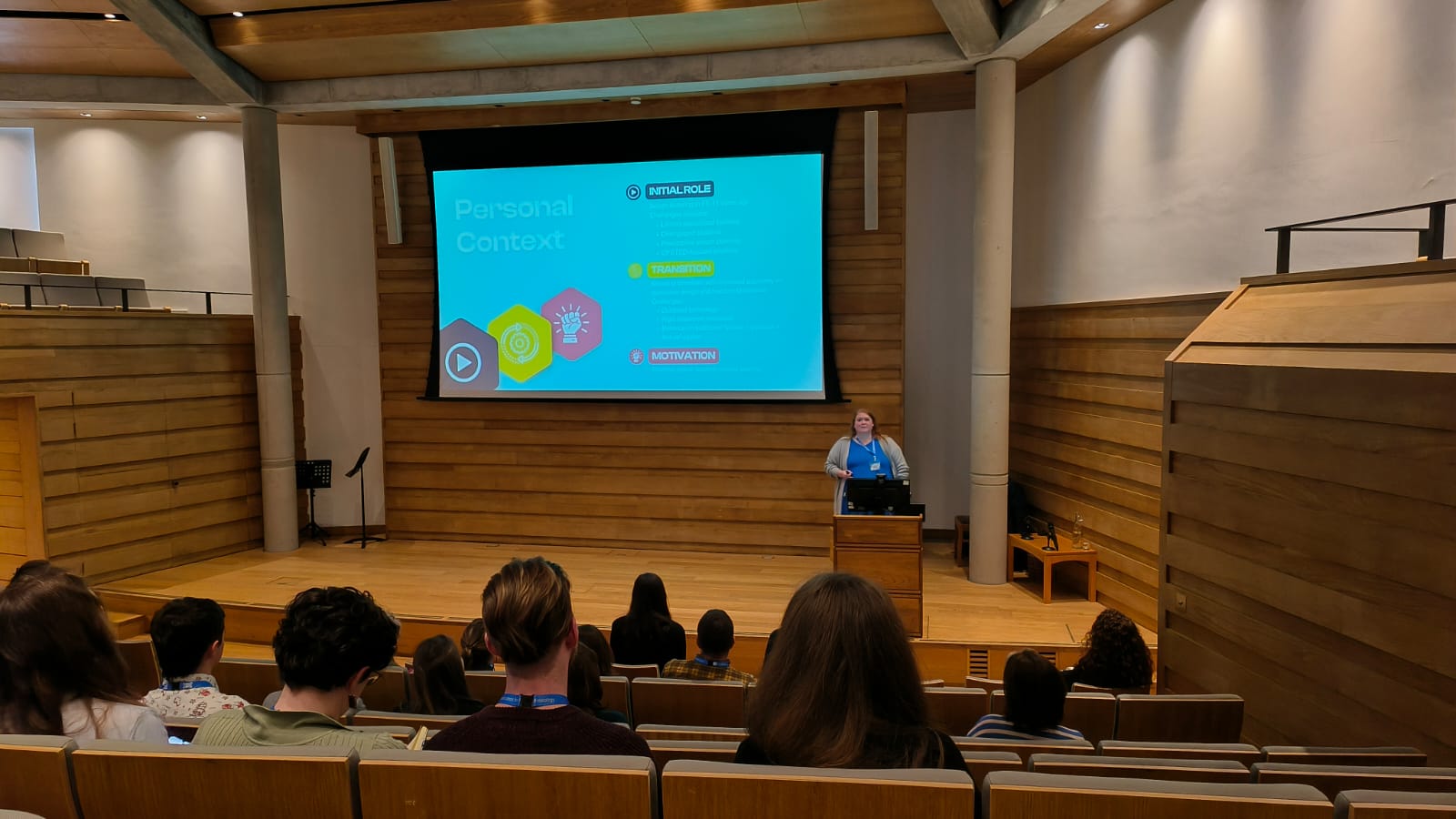Insights, Innovation, and Inspiration at the BAFA Winter Conference 2024
-(1).jpg)
By Amy Rattenbury, Senior Lecturer in Forensic Science
.png)
This year’s British Association for Forensic Anthropology (BAFA)Winter Conference, hosted at Wolfson College, Oxford, was a fantastic opportunity to reconnect with the forensic anthropology community, share ideas, and explore new research. The setting was unforgettable, not just for its interesting architecture but also its unexpected cinematic connection: part of Jurassic World: Dominion was filmed there. Presenting at the University of Oxford, in the same lecture theatre where Jeff Goldblum’s character stood was a memorable moment in my career.
Reconnecting with the BAFA Community
Having stepped down from the BAFA Committee, last year after six years as the Membership Secretary, I was worried that I might feel more distant from the community. Instead, I found BAFA as welcoming as ever. It was great to catch up with familiar faces, meet new people, and begin meaningful discussions. Without the stress of organising, I could fully enjoy the event, and I have so much admiration for the current committee who pulled it all together so seamlessly.
The conference highlighted the value of communication and collaboration across all career stages. It was reassuring to hear honest conversations about shared challenges, including cognitive bias in decision-making and feelings of imposter syndrome. These exchanges created a supportive environment and left many of us feeling more connected.
The round table discussion on career pathways was one of the most valuable sessions for me. It focused on practical ways to stand out in a competitive field, such as volunteering, networking, and taking risks to put yourself out there. There was also an important focus on the challenges faced by international students, including navigating visa systems and adapting to new professional expectations. The advice shared was practical, inclusive, and something I’ve taken back to share with my students.
Inspiring Keynotes
The keynote presentations were a real highlight. Dr Anicée Van Engeland opened the conference with a fascinating talk on how forensic science intersects with international humanitarian law. Her presentation explored the ethical and legal challenges faced by forensic anthropologists, showing how our work contributes to justice on a global scale.
Jose Luis Silván Cárdenas and Miguel Moctezuma presented another unforgettable keynote on their work using drones to locate missing persons in Jalisco, Mexico. The integration of technology with local, grassroots knowledge was inspiring, but the real impact came from hearing about the resilience and determination of the families leading these searches. It was a moving reminder of the very human element at the heart of forensic anthropology.
Exploring Diverse Research
The range of research presented at the conference was impressive, showcasing how diverse and interdisciplinary forensic anthropology has become. Presentations and posters covered topics like isotopic analysis, forensic dental diagenesis, and fractography, an innovative technique to understand bone breakage patterns in forensic cases. Wrexham’s own Shivani Sanger also had a poster on display discussing her PhD research on ‘Sex Estimation From The Orbital-Nasal Region In The Greek-Cypriot Population’.
My own presentation on SCALE-UP pedagogy explored how active learning environments can enhance forensic science education. While it had a slightly different focus from many of the other talks, I was thrilled by how well it was received. It sparked some fantastic conversations, with attendees expressing interest in peer observations and workshops to learn more about applying this approach. It’s exciting to see education and casework starting to intersect more meaningfully.
I even had the chance to participate in a research project on age estimation from teeth in a modern population. My teeth were 3D scanned as part of the study, and I’m looking forward to receiving virtual models of them soon. I might even ask a colleague to 3D print them so I can use them in my own teaching!

Looking Ahead
As the conference came to a close, I was struck by the energy and creativity on display throughout the weekend. For anyone studying or working in a related discipline, BAFA events are an excellent way to grow professionally, connect with like-minded people, and learn about the latest developments in the field. The association also provides helpful funding opportunities for CPD and research, making these events accessible to many.
This conference was a reminder of how vibrant and impactful the forensic anthropology community is. I left feeling uplifted, inspired, and ready to explore new ideas in my own work. I’m already looking forward to the next BAFA event and can’t wait to see how these conversations shape the future of the discipline.